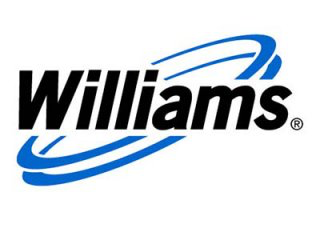Williams-Energy Transfer Merger Passes Muster – with Conditions

The Federal Trade Commission (FTC) said Thursday that Energy Transfer Equity (ETD) and The Williams Companies will divest Williams’ interest in an interstate natural gas pipeline to settle claims that ETE’s proposed acquisition of Williams would likely harm competition in Florida.
The proposed merger, initially valued at $37.7 billion, would have reduced competition in the market for guaranteed pipeline capacity to deliver natural gas to points within the Florida peninsula, according to the FTC complaint.
In Florida, natural gas is extensively used for electric power generation, making competitive access to constant and reliable sources of supply critical. Florida’s electric power utilities are the state’s largest purchasers of natural gas. The state, however, has virtually no local sources of natural gas production and no natural gas storage, making utilities and other customers dependent on pipeline-transported supply.
As the FTC’s complaint alleges, the combination of ETE and Williams, as proposed, likely would have increased the price of transporting natural gas to utilities and other customers.
According to the FTC complaint, Dallas-based ETE owns a 50% share in Florida Gas Transmission (FGT), one of two interstate pipelines that serve the Florida peninsula. Tulsa-based Williams owns 50% of the other interstate pipeline – Gulfstream Natural Gas System.
Absent a remedy, FTC said the acquisition would eliminate the competition between FGT and Gulfstream, which has enabled Florida customers to obtain lower transportation rates and better terms of service. It also would have resulted in a pipeline monopoly at many natural gas delivery points within the peninsula.
The proposed consent agreement preserves competition between FGT and Gulfstream by requiring the newly merged company – Energy Transfer Corp LP – to divest to a commission-approved buyer its interest in Gulfstream within 180 days after the acquisition becomes final. Energy Transfer Corp is required under the order to maintain Gulfstream as a viable, competitive, and marketable asset until the divestiture has been completed.
The FTC’s complaint also alleged without conditions in place the proposed merger likely would harm future competition from a new interstate pipeline, Sabal Trail Transmission, which is scheduled to start transporting natural gas to parts of the Florida peninsula in May 2017.
According to the complaint, Sabal Trail and its future customers will rely on leased access to a segment of the Transco Pipeline, a Williams-owned, large interstate pipeline, for natural gas supply. The complaint alleges that the newly merged company will have an incentive to deny Sabal Trail additional capacity expansions on Transco because ETE’s FGT pipeline is a closer competitor to Sabal Trail than was Williams’ Gulfstream pipeline.
The proposed consent agreement preserves that future competition from Sabal Trail by incorporating the terms of a capacity lease agreement that Sabal Trail had reached with Transco before Williams’ acquisition by ETE, and by requiring ETE to negotiate with Sabal Trail for certain additional expansions of the Transco segment.
Related News
Related News

- Trump Aims to Revive 1,200-Mile Keystone XL Pipeline Despite Major Challenges
- Valero Considers All Options, Including Sale, for California Refineries Amid Regulatory Pressure
- ConocoPhillips Eyes Sale of $1 Billion Permian Assets Amid Marathon Acquisition
- ONEOK Agrees to Sell Interstate Gas Pipelines to DT Midstream for $1.2 Billion
- Energy Transfer Reaches FID on $2.7 Billion, 2.2 Bcf/d Permian Pipeline
- U.S. LNG Export Growth Faces Uncertainty as Trump’s Tariff Proposal Looms, Analysts Say
- Tullow Oil on Track to Deliver $600 Million Free Cash Flow Over Next 2 Years
- Energy Transfer Reaches FID on $2.7 Billion, 2.2 Bcf/d Permian Pipeline
- GOP Lawmakers Slam New York for Blocking $500 Million Pipeline Project
- Texas Oil Company Challenges $250 Million Insurance Collateral Demand for Pipeline, Offshore Operations




Comments